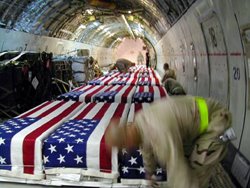
I recently wrote post peak eats, a summation of my presentation at the Triangle Conference on Peak oil and Community Solutions last month. In it I described part of the Cuban response to the decline in available petroleum experienced in country when the Soviet Union collapsed in 1991. I received the following comment.
a generally excellent article but do you really believe that the Cuban infant mortality is better than the US infant mortality rate? Rather than just accept and repeat that 'fact' I would hope that as a journalist, you would check it out a little further. Do they count an infant as 500 grams or 24 weeks or what? If you saw the conditions of their hospitals you would be amaized and disgusted. Since you made the claim about Cuban infant mortality being better than the US could you please back that up with data? Also, although Americans live a very unhealthy lifestyle could you please show is the data on comparable Cuban longevity? or do you just accept what the Cuban government tells you? A final question for all who are enthralled by Che, how many people, many innocent by his own admission, did he personally execute and how many did he order killed by subordinates? Are those murders in the Cuban statistics or 'overlooked'? Thankyou for the otherwise excellent article and I look forward to the courtesy of your response, robin appleby M.D.
In an effort to better speak to these issues I thought a separate post was in order.
I did not rely on the Cuban government for my facts concerning the infant mortality rate and the life expectancy experienced here and in Cuba. Ironically I relied on the government of the United States of America. Our own Central Intelligence Agency provided me with this information on Cuba and the U.S. These topics are complex to be sure. An article from ABC in November of 2005 discusses some of the many facets of the infant mortality issue. I have never seen the inside of a Cuban hospital. I know that the country and its people are not wealthy and were hit hard by the U.S. economic embargo and later the loss of Soviet support. The simple fact though that a country with such limited resources is able to compare so closely with the United States concerning any matters of health despite the discrepancy in the amount of money spent annually on health care is worthy of note and further inspection.
Americans spend $5,267 per capita on health care every year, almost two and half times the industrialized world’s median of $2,193; the extra spending comes to hundreds of billions of dollars a year. What does that extra spending buy us? Americans have fewer doctors per capita than most Western countries. We go to the doctor less than people in other Western countries. We get admitted to the hospital less frequently than people in other Western countries. We are less satisfied with our health care than our counterparts in other countries. American life expectancy is lower than the Western average. Childhood-immunization rates in the United States are lower than average. Infant-mortality rates are in the nineteenth percentile of industrialized nations. The New Yorker
Information on the state of Cuban health care can be found in an article that states, Since 1959, Cuba has invested heavily in health care and now has twice as many physicians per capita as the United States and health indicators on a par with those in the most developed nations - despite the U.S. embargo that severely reduces the availability of medications and medical technology. Read the entire story here in The New England Journal of Medicine or here from the University of Dayton Law School.
I find it interesting that people here in the United States are so quick to criticize the Cuban government concerning human rights abuses before beginning an internal examination of our own practices. Irony it would seem, has placed hundreds of U.S. detainees at a military base run by the American government on the island of Cuba. These men have been held for more than 4 years without being charged or given a trail to either prove them guilt and sentence them or find them innocent and release them. They are being held indefinitely. This BBC article described a recent U.N. report by saying; Treatment of detainees at Guantanamo Bay constitutes torture in some cases and violates international law.
The detainees aren’t called Prisoners of War which might make their care subject to the Geneva Convention. They’re called Enemy Combatants which the U.S. government defines as an individual who was part of or supporting the Taliban or al Qaida forces, or associated forces that are engaged in hostilities against the United States or its coalition partners. This includes any person who committed a belligerent act or has directly supported hostilities in aid of enemy armed forces.
The United States doesn’t kidnap suspects and transfer them to prison facilities in order to do God knows what to them. We practice extraordinary-rendition.
The United States doesn’t practice warrantless spying on its own citizens. We utilize a terrorist surveillance program to keep tabs on anyone we want.
The president of the United States of America, who was granted extraordinary powers to wage war by congress, invaded Iraq in March of 2003. Set aside the statement from A U.S. general who commanded the U.S. allied air forces in Iraq has confirmed that the U.S. and Britain conducted a massive secret bombing campaign before the U.S. actually declared war on Iraq (story here) and focus on the fact that the reason given the American people and the world for this invasion was Saddam Hussein’s possession of weapons of mass destruction.

In fact there were no weapons of mass destruction. At the end of October 2004 it was clear that there were no WMD’s and documentation showed that more than 1,100 United States Servicemen and Servicewomen had been killed in Iraq fighting under this false pretense.
 The following month the American people reelected the leader that made this mistake and sent these brave solider to his War on Terror. Never mind that there had been no terrorists in Iraq before our invasion. [update - hours after I wrote this I find out the U.S. government has renamed the war. Read here]
The following month the American people reelected the leader that made this mistake and sent these brave solider to his War on Terror. Never mind that there had been no terrorists in Iraq before our invasion. [update - hours after I wrote this I find out the U.S. government has renamed the war. Read here]
It seems to be more about semantics for us. Rename your actions, or your program or your operation or your war and we’ll support you. It helps to label it as patriotic and to color it in red, white and blue. Shhhhhhhhhhhh. The American people are sleeping.
It’s been widely reported that Fidel has killed or imprisoned political opponents during his leadership of Cuba. I in no way excuse those actions. My point is though that I find it interesting that we will tolerate abuse of our own at home and abroad as long as our leaders are clever in the way they approach us about it, but mention a rogue like Fidel Castro and you’ll stir up Americans to decry someone else as a villain and a monster. Why is this? Why have the American powers-that-be branded so strongly this revolution with such strapping condemnation? Was it because of the real human rights abuses undertaken by Fidel Castro? Was that the only reason? You’ll need a brief timeline on the history of Cuba in order to better understand.

In 1492 Chistopher Columbus landed in Cuba and renamed its inhabitants Indians. Within a few years the Spanish had conquered the natives and established a feudal system. Disease and abuse killed much of the population initially and those who remained worked to strip the island of its resources to be shipped back to Spain. Plantation style agriculture was imposed mostly in the form of sugar and tobacco farming. This included the importation of slaves from Africa. The U.S. made attempts to purchase and later to out-right take over the island nation. American companies eventually accomplished this and were heavily invested by the 1920’s. The Cuban revolution was successful in 1959. After assuming power, Fidel Castro nationalised the major companies including the mines, banks and the electricity company, all of which were largely owned by U.S. interests. Very quickly the U.S. retaliated by placing a trade embargo on Cuba, attempting to isolate the island economically. Two years later Cuban exiles backed by the CIA invaded Cuba. The mission was a complete failure and initially America denied involvement in the Bay of Pigs invasion. Eventually the truth became clear. Cuba, already experiencing a socialist movement turned to the U.S.SR. for support. The following year the world came closer than at any other point in history to nuclear war. Makes a little more sense when you but it all together doesn’t it? That’s not, however the way it reads in 10th grade social studies.
History, History and More History.
If you’re still reading this you’re probably shocked and angry at either me or the U.S. government or both depending on who you believe. Maybe you knew all this already. If so, good for you. The point of this post is not to condone the actions of Fidel Castro and his one party police state. I condemn acts of deceit, torture, punishment, involvements in unlawful activities or any other such suppression of truth and liberty by governments against their own people. I wrote the above as a rejection of the notion that we, the righteous America, have nothing to learn from such a wicked country as Cuba.
Human history will be shifting soon. A peak in global oil production and later in natural gas will cause energy availability to decrease. The ramifications will be felt throughout society and across the world. I believe the people of the United States of America can learn valuable lessons from Cuba and its experiences.

Chief among those are the importance of community and solidarity between the common people during times of crisis and the idea that in these same times of trouble the powers of government are willing and will probably be able to impose restrictions in opposition to the freedoms we currently enjoy. Those unwilling to learn new ways of being and doing and understanding our era will be in trouble. You can learn something from anything. Indeed in the future you must.

 The following month the American people reelected the leader that made this mistake and sent these brave solider to his War on Terror. Never mind that there had been no terrorists in
The following month the American people reelected the leader that made this mistake and sent these brave solider to his War on Terror. Never mind that there had been no terrorists in 




1 comment:
Mike,
How great it is to hear there are still teachers willing to teach kids to think for themselves. Keep up the good work.
Post a Comment